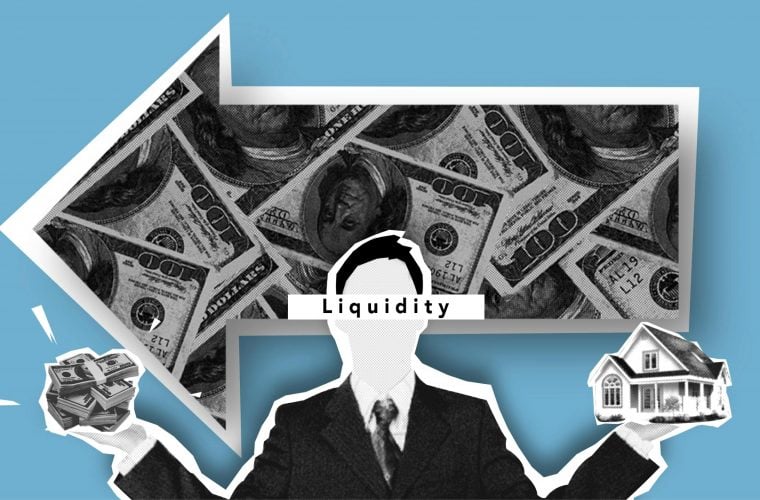
Retail vs. eCommerce: Has the Tide Turned For Good?
It’s hard to ignore the impact Covid-19 has had on eCommerce, retail, and shopping behavior worldwide. Many experts believe the shape of the retail industry has fundamentally changed forever, with more businesses going fully digital and online purchases hitting record highs.
It’s safe to say the mantra of “adapt or die” has never been more true for companies in the retail industry.
The Impact Of The Pandemic
At the beginning of the Covid crisis, we mostly saw panic buying and mass Amazon deliveries due to the uncertainty over what was to come. Before long, the pandemic quickly changed the entire landscape to a scenario where most people carried out the entirety of their shopping purchases online.
In fact, almost all digital products and services saw an unprecedented rise in demand, from food delivery to video streaming services.
As for brick and mortar businesses, retail stores were hit hardest across the world as they were forced to close for months on end. Meanwhile, eCommerce stores thrived. With the click of a button, you could get almost anything you would want from a physical store, yet it was safer, with a wider variety, and in many cases – cheaper.
In the UK, multiple physical retail stores have now closed for good, including 100+ years old department store Debenhams and Topshop, both acquired by online retailers – Asos and Boohoo. According to Econsultancy, 50% of clothing and footwear sales come from online shopping, while UberEat’s revenue was up over 200% in Q4 of 2020.
The Impact On Ecommerce
The companies that were already predominantly functioning as an online business were well equipped to deal with the challenges of the pandemic. For most business owners, their biggest issue was learning how to cope with increased demand while navigating the inevitable disruptions to supply chains.
Of course, while some benefited, others fell behind. Several industries found themselves in an unenviable position where there wasn’t much they could have done to improve their situation, no matter how rapidly they digitized their products and services. For example, online travel and holiday purchases plummeted because of lockdowns and international restrictions, with a considerable number of consumers demanding compensation and their money back for failed trips.
Airline and travel sites like Booking.com saw their stocks crash because of the lack of trust in the industry. Even with lockdowns easing in many countries, consumers were still cautious about booking holidays and mainly traveled locally.
The Impact On Retail
What was once the very attractive idea of retail therapy (especially the shopping spree when getting one’s monthly salary) has more or less completely vanished. With people stuck at home, window shopping was no longer an option, nor was going into a store for one thing and leaving with a bag full of items.
Across the USA, many states closed schools, bars, restaurants, and movie theatres were closed in an effort to slow the spread of the coronavirus. As a result, the retail industry (comprised of brick and mortar stores) has been left rocked by the shifting consumer behavior. The only way they could continue to generate an income is through digital transformation; however, switching your entire business model to accommodate digital strategies is no easy feat – especially out of desperation.
What’s Next For Retail and Ecommerce?
Despite the fact most people are being more careful than before and limiting their purchases in-store versus online, there is still a massive demand for physical stores, pop-up shops, street markets, boutiques, and sales. Online cannot replace the tangible experience of seeing, touching, and trying on a piece of clothing or being able to smell fruit in the supermarket.
So even though Covid-19 has truly changed the face of retail, it will be a long time before retail and physical stores are completely abandoned. It could even be argued that people will flock to shopping centers as soon as they can safely do so because of the nostalgia associated with those places and the feeling of returning to normality.
However, many experts believe that in some ways, Pandora’s box has been opened, with McKinsey estimating that digital transformation has been accelerated by a shocking seven years. The thing is, before the pandemic, most companies thought the digital transformation of their product or services was an optional strategy they could implement slowly, yet, we all know that in times like these, businesses were forced to adapt or they would find themselves with no way to generate revenue.
According to business coach Russ Ruffino, CEO of Clients on Demand, he believes that almost all service-based businesses should have had a digital contingency plan for situations like this:
“I believe that every coaching, consulting, or professional services company should have a revenue stream that functions 100% online. No one knows what the future holds or when it will be safe to see clients face-to-face again. Having an offer that is sold and delivered online is a no-brainer for people looking to expand and secure their revenue while maximizing their reach and global impact,” explained Ruffino.
Final Word
With the last year’s turbulent rollercoaster in our rearview mirror, predicting what the remainder of 2021 and the years that follow will look like in retail is difficult. If one thing is certain, it’s that the shift in preference to eCommerce and digital services will likely continue (at least in some capacity) after the pandemic is resolved.
Consumers are now much more accustomed to searching for products online and navigating eCommerce solutions than they would have been prior to 2020 – but don’t expect physical retail stores to be disappearing any time soon.














